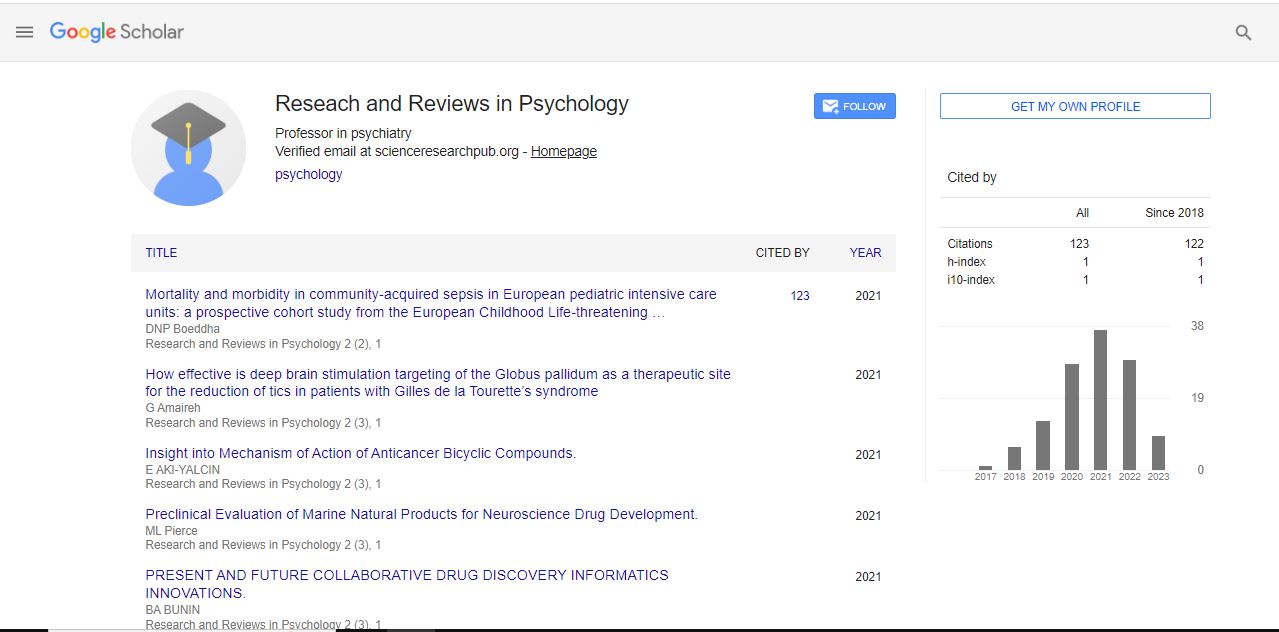Short Communication, Res Rev Phys Vol: 2 Issue: 4
Depression and Anxiety in University students
The psychological problems among students are relatively common, especially symptoms of anxiety and depression, with significant increase in the last two decades. They often interfere with students academic performance through low motivation, poor concentration and general low capacity for work. The results of our 3-years longitudinal study with representative sample of 492 freshmen (60% women) indicate that 52% students have higher level of anxiety and 23% higher level of depressive symptoms when starting college. Based on the cognitive model we have checked the possible moderator role of different cognitive factors contributing to the change in the level of students symptoms, as well as possible protective factors in academic success. Even if depressive symptoms are not as common as anxiety symptoms among students, it seems more important to recognize and alleviate first signs of depression as they have more deleterious effect on academic functioning. Anxious student often feel high stress, but depressed students are at much higher risk for longer attending or dropping out from college. Our results gave strong support for using cognitive-behavioral interventions with depressed students. Cognitive strategies should focus on their negative automatic thoughts during learning and taking exam (especially thoughts related to fear of disappointing parents), expectations and attributions of their success, as well as beliefs about personal control over their achievements. As we have found that better academic adjustment at the beginning of college, better organization and study skills can protect depressed students from dropping out, the behavioral interventions should focus at improving academic skills.
Abstract
The psychological problems among students are relatively common, especially symptoms of anxiety and depression, with significant increase in the last two decades. They often interfere with students academic performance through low motivation, poor concentration and general low capacity for work. The results of our 3-years longitudinal study with representative sample of 492 freshmen (60% women) indicate that 52% students have higher level of anxiety and 23% higher level of depressive symptoms when starting college. Based on the cognitive model we have checked the possible moderator role of different cognitive factors contributing to the change in the level of students symptoms, as well as possible protective factors in academic success. Even if depressive symptoms are not as common as anxiety symptoms among students, it seems more important to recognize and alleviate first signs of depression as they have more deleterious effect on academic functioning. Anxious student often feel high stress, but depressed students are at much higher risk for longer attending or dropping out from college. Our results gave strong support for using cognitive-behavioral interventions with depressed students. Cognitive strategies should focus on their negative automatic thoughts during learning and taking exam (especially thoughts related to fear of disappointing parents), expectations and attributions of their success, as well as beliefs about personal control over their achievements. As we have found that better academic adjustment at the beginning of college, better organization and study skills can protect depressed students from dropping out, the behavioral interventions should focus at improving academic skills.
 Spanish
Spanish  Chinese
Chinese  Russian
Russian  German
German  French
French  Japanese
Japanese  Portuguese
Portuguese  Hindi
Hindi 